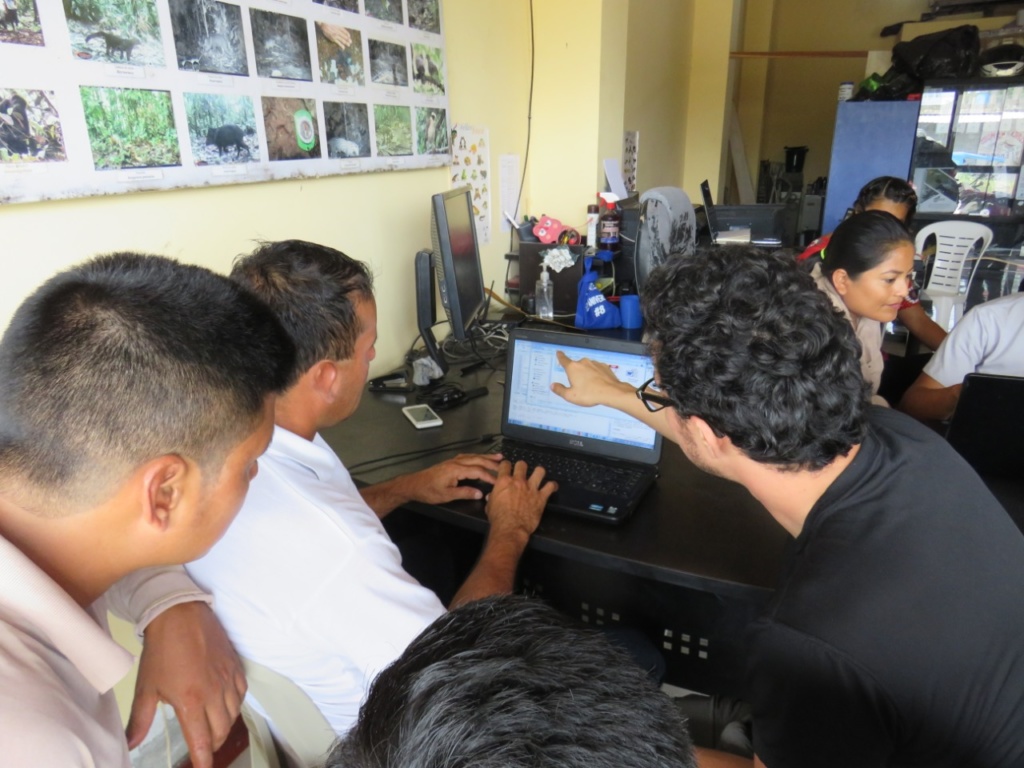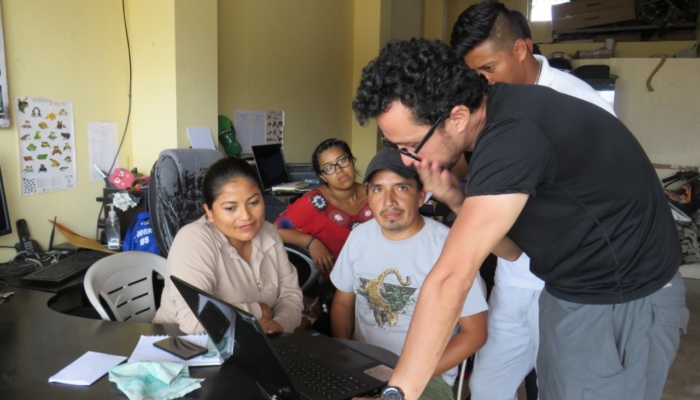Digital Divide, A Graduate Student Perspective
Digital Divide, A Graduate Student Perspective
By Luis Daniel Montalvo
While reading an article about the challenges that graduate students undergo with open-source software in the U.S., I could not avoid thinking about the obstacles with Information, Communication and Technology (ICT) for students and young researchers in developing countries. The article described issues that might be familiar to many graduate students: lack of and inconsistencies in training, unfamiliarity with statistic and data transformation, motivation, etc.2.
I started thinking about the multiple limitations I experienced as an international graduate student and a researcher in a developing country. If you think doing science is hard in the USA, imagine how it is trying to conduct science where you do not have access to scientific articles (a problem that has been reduced by SciHub), paid softwares, someone who can guide you in the use of open-source software or even access to good internet. Before SciHub, I remember spending several long nights downloading papers using someone else’s computer when a journal or store offered free articles for one month.
This disparity in access to ICT has a name: the digital divide. The digital divide is a complex concept, but I define it as the gap between those who benefit from technology and digital advances and those who don’t. Digital divide includes differential access to hardware, software and equipment — cell phone, computer, internet, etc. — but also to non-digital elements such as skills and literacy5,6. In this blog, I want to share some of my thoughts and perspectives on the digital divide as a graduate student and researcher from a developing country.
My research today would be impossible without access to a High-Performance Computer (HPC) such as HiPerGator. HPC is a non-existent resource in many countries. Paid HPC sites such as Amazon Web Services (AWS) might be too costly, and free versions might be difficult to start using. HPCs are helpful and even necessary for many statistical analyses as well as data management such as population and community models of abundance, population genetics and phylogenetics. For many of the researchers I know in my home country, these analyses are impossible without collaboration with investigators from developed countries.

Non-English native speakers find limitations not only in understanding a complicated article in a language they haven’t fully mastered, but also in learning coding and programming. If you think coding and programming is hard, imagine if most of the information is in a language you do not speak. Let me illustrate. Often valued by its users, one major advantage of Python is its English-like syntax. Of course, this is an advantage if you know English. Imagine you are looking at your first code ever. You might see some words such as <if>, <print>, <true>, <while>. Now imagine everything is in a language you do not speak, let’s say, Russian. You will find words like <заголовок>, <заглавие>, <тело> and <п>. How do you think your learning curve will be then?. Some softwares such as Excel are multilingual but, needless to say, that these are in the minority4.
The speed at which the development of ICT is advancing is dizzying. Have you ever felt overwhelmed because of the fast development of computational advances? Maybe by the time you get your paper ready for submission, a new and more sophisticated statistical or computational tool might become available. It is very likely that someone who doesn’t have access to these tools because of limitations in language, training or simple access to information would learn about these advances in time to use them. This delay will increase the digital divide in essential knowledge and skills. In the US, many graduate students might not know they lack important coding and computational skills2. This gap is greater in developing countries and is closely tied to income inequality3,7.
Case for accessibility
Now things are changing fast as many students and young scientists from developing countries can gain access to scientific articles and the softwares to analyze data. From the perspective of a student from a developing country, open-source and free ICT are a way to make science more democratic.
Today, more researchers are publishing or posting their codes. This is always helpful regardless of how simple your code is. You can use websites such as GitHub or publish your code as supplements of articles. If someone is bilingual, one can post in their native language including posts on community question websites such as StackOverflow. Many students in developing countries cannot search in English. Promote multilingualism in science whenever is possible. If you are a researcher working in developing countries, interact with students and researchers to discuss ICT advances.
The democratization of coding, computing, and science is a great start. However, some limiting factors such as language, access to equipment and funding1, lack of and inconsistencies in training2 jeopardize the development of STEM in developing countries.
If not addressed soon, I am afraid that these limiting factors will increase the digital divide. This inequality of access to ICT and training, in my perspective, will increase the gaps in knowledge between developing and industrialized countries or even between institutions, regions, or social classes within countries.
Check out blogs from other UFBI Fellows.
REFERENCES
- Badr, M. Z. (2018). Challenges Facing Scientific Research in Developing Countries: 2. Environment and Resources. Egyptian Journal of Basic and Clinical Pharmacology, 8. https://doi.org/10.11131/2018/101388
- Cereceda, O., & Quinn, D. E. A. (2020). A graduate student perspective on overcoming barriers to interacting with open-source software. FACETS, 5(1), 289–303.
- Gonzales, A. (2016). The contemporary US digital divide: from initial access to technology maintenance. Information, Communication & Society, 19(2), 234–248. https://doi.org/10.1080/1369118x.2015.1050438
- McCulloch, G. (2019). Coding Is for Everyone—as Long as You Speak English. Retrieved from https://www.wired.com/story/coding-is-for-everyoneas-long-as-you-speak-english/
- Van Dijk, J. A. G. M. (2006). Digital divide research, achievements and shortcomings. Poetics, 34(4–5), 221–235. https://doi.org/10.1016/j.poetic.2006.05.004
- Yu, L. (2006). Understanding information inequality: Making sense of the literature of the information and digital divides. Journal of Librarianship and Information Science, 38(4), 229–252. https://doi.org/10.1177/0961000606070600
- Zhang, X. (2013). Income disparity and digital divide: The Internet Consumption Model and cross-country empirical research. Telecommunications Policy, 37(6–7), 515–529. https://doi.org/10.1016/j.telpol.2012.12.011


